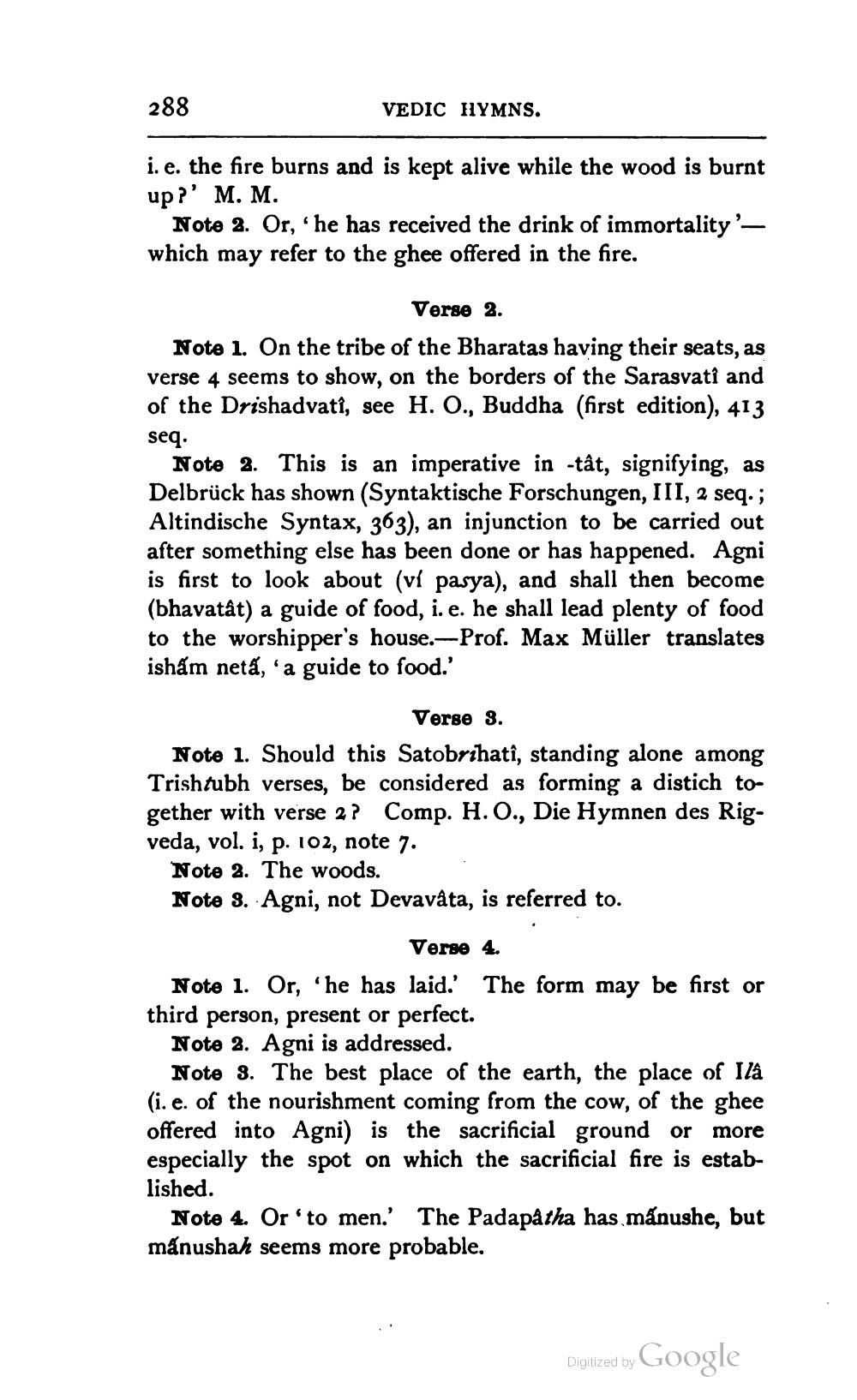________________
288
VEDIC HYMNS.
i. e. the fire burns and is kept alive while the wood is burnt up?' M. M.
6
Note 2. Or, he has received the drink of immortality'which may refer to the ghee offered in the fire.
-
Verse 2.
Note 1. On the tribe of the Bharatas having their seats, as verse 4 seems to show, on the borders of the Sarasvati and of the Drishadvatî, see H. O., Buddha (first edition), 413 seq.
Note 2. This is an imperative in -tât, signifying, as Delbrück has shown (Syntaktische Forschungen, III, 2 seq.; Altindische Syntax, 363), an injunction to be carried out after something else has been done or has happened. Agni is first to look about (ví pasya), and shall then become (bhavatât) a guide of food, i. e. he shall lead plenty of food to the worshipper's house.-Prof. Max Müller translates ishẩm neta, a guide to food.'
Verse 3.
Note 1. Should this Satobrihatî, standing alone among Trishtubh verses, be considered as forming a distich together with verse 2? Comp. H. O., Die Hymnen des Rigveda, vol. i, p. 102, note 7.
Note 2. The woods.
Note 3. Agni, not Devavâta, is referred to.
Verse 4.
Note 1. Or, he has laid.' The form may be first or third person, present or perfect.
Note 2. Agni is addressed.
Note 8. The best place of the earth, the place of Ilâ (i. e. of the nourishment coming from the cow, of the ghee offered into Agni) is the sacrificial ground or more especially the spot on which the sacrificial fire is established.
Note 4. Or 'to men.' The Padapâtha has manushe, but mánushah seems more probable.
Digitized by
Google




